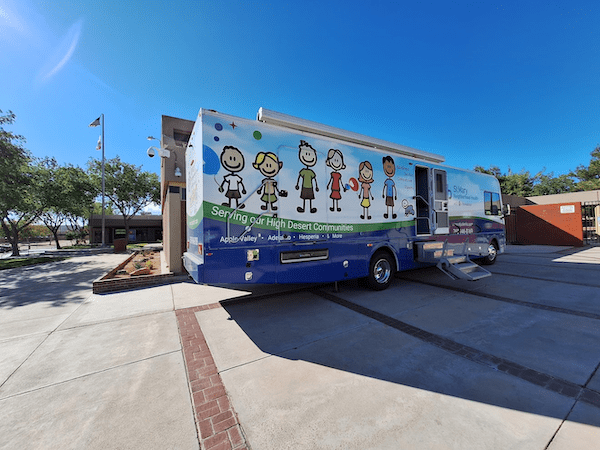Research to improve health equity and outcomes
Innovating for the future | Research
Each day, our vision of health for a better world is made more tangible through comprehensive investments that are informed by community voices. During the pandemic, our Providence Research Network teams saw opportunities to solve problems by collaborating in new and nimble ways, and by connecting more deeply with community organizations. Innovative work done by the Providence Research Network in 2021 produced vital research findings on the impact of COVID-19 and on health disparities, bringing knowledge and hope to our patients.
Learn more about the Providence Research Network and read its 2021 annual report.
My COVID Diary Study: Citizen scientists track long COVID symptoms
Early in the pandemic, Providence’s research team began the My COVID diary study, which continued into 2021 and ultimately engaged about 15,000 participants to understand the impact of COVID-19, especially among those who experienced long and difficult recoveries. The study gathered an immense amount of qualitative data that helped inform other COVID research and reflects a period in which researchers, clinicians and patients were all learning about the virus in real time.
My COVID diary invited participants to be citizen scientists. It was an opportunity to put patients’ voices at the center of research. “This journaling-based study seeks to understand the experience of COVID through the voices of those who experienced it firsthand: not just the symptoms, but how it affected their lives,” shares Bill Wright, Ph.D., vice president of Innovation and Research at Providence.
Patients who received a positive COVID-19 test were contacted by text message or phone call and invited to participate in My COVID diary via a phone-based application. The study sent out occasional surveys and reminders to participants on the app, encouraging them to log their symptoms.
“We have to do research closer to communities we serve, engage them as partners, not subjects, and understand their health concerns in the context of their own lives.” - Bill Wright, Ph.D., vice president, Innovation and Research at Providence.
Dr. Wright also notes that studies such as My COVID Diary allow Providence to translate a large amount of data into clear insights that benefit patients and entire communities. “Beyond the clinical, we can see from this study the effect on people’s lives and emotions. We have to do research closer to communities we serve, engage them as partners, not subjects, and understand their health concerns in the context of their own lives,” says Wright.
The My COVID diary study complements other important Providence research, such as a study led by the Institute for Systems Biology, published in early 2022 by Cell, to increase our knowledge of the causes, characteristics, and consequences of long COVID.
A collaborative team spanning Providence’s clinical analytics team, the Center for Outcomes Research and Education, or CORE, and our health research accelerator continues to work with the data. The team uses coding and artificial intelligence natural language processing technology to help analyze patterns of what was reported.
Learn more about CORE and read the team's 2021 CORE annual report.
Southern California: Research supports Standup to Cancer partnership
Collaborations with other organizations in our communities are as important in research as in our clinical and community service work. In October 2021, we joined forces with Stand Up To Cancer®, SU2C, and Exact Sciences to create and fund a new ‘Dream Team’ dedicated to reducing colorectal cancer disparities. With more than 50,000 deaths per year, colorectal cancer is the second most common cause of cancer deaths in the U.S. and has a disproportionate impact on medically under-resourced communities, including communities of color.
The SU2C Colorectal Cancer Health Equity Dream Team received financial support from Providence to embark on an innovative and comprehensive partnership, including $2 million for research. Together, leading researchers, patient advocates, community leaders and clinicians share several goals, including increasing colorectal cancer screening in medically underserved communities.
Among communities of color, colorectal cancer incidence and deaths are highest among Black Americans, followed closely by Indigenous Americans/Alaska Natives. Another area of inequity is that people with the lowest socioeconomic status are 40 percent more likely to be diagnosed with colorectal cancer than those with the highest socioeconomic status. During the course of the pandemic, screenings for colorectal cancer have significantly decreased especially among these populations.
One of The Dream Team’s leaders is Anton Bilchik, M.D., Ph.D., MBA, FACS, who is based at Providence Saint John’s Health Center in Los Angeles. He and others on the leadership team bring a deep understanding of racial and health inequities within communities of color. Providence Saint John’s is partnering with our health research accelerator to advance this important project.
Local Community Health Action Teams will work as health promoters and care navigators in their own neighborhoods to increase colorectal cancer screening rates in diverse areas of Los Angeles. CHATs will also be collecting data to feed into research.
Under the leadership of Dr. Bilchik, and supported by community-based research, Providence is deploying a locally-focused campaign to increase colorectal cancer screening rates in demographically diverse areas within Los Angeles County. Essential to the plan are Community Health Action Teams. These teams will be made up of local residents trained and supported to work as health promoters and care navigators in their own neighborhoods. CHATs will also be collecting data to feed into research that will help Providence Saint John’s clinicians understand how to strengthen and replicate the impacts of the approach. Our research team is proud to be a collaborator in this important campaign.
Using our scale for good
Successes in research from 2021 emphasized the benefits of creating accelerated processes to launch research quickly. We learned that our best work is done when we collaborate and use the scope and reach of our network to achieve clinically useful results and, most importantly, advance health equity for all. Thanks to these networks and a focus on translational and precision medicine, we're able to conduct and scale research that integrates social and personal influences on health. In this way, we can reach our goal of democratizing findings and creating more paths to advance precision medicine at the bedside.





